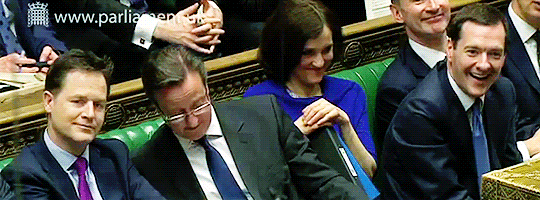The Bluestocking, vol XXIII: deadly sugar and party paydays
Evening all, sorry for the late night newsletter. Hope you enjoy the links!
Helen
The Sugar Conspiracy
Ancel Keys was brilliant, charismatic, and combative. A friendly colleague at the University of Minnesota described him as, “direct to the point of bluntness, critical to the point of skewering”; others were less charitable. He exuded conviction at a time when confidence was most welcome. The president, the physician and the scientist formed a reassuring chain of male authority, and the notion that fatty foods were unhealthy started to take hold with doctors, and the public. (Eisenhower himself cut saturated fats and cholesterol from his diet altogether, right up until his death, in 1969, from heart disease.)
Ian Leslie is one of my favourite writers - clever, funny and (I know we don't use this word any more) waspish. His piece on how nutritionists decided that fat was making us fat, and ignored all the evidence pointing to sugar, is masterful. As a result of people eating low-fat - and therefore high carbohydrate - diets, obesity levels have soared. If you enjoy this story, do read Alice Dreger's book on politicised science, and its casualties: Galileo's Middle Finger. Her piece on vaccines for the NS is also worth reading.
Money For Nothing
Either Disick is not in the mood to party, or he is making a concerted effort not to misbehave in front of 700 smartphone cameras. He says a few hoarse words on the mic, sits back down, and sips slowly from a water bottle at his VIP table, out of the crowd's sight. Here is Disick, working hard for his money: an orphan, estranged from the mother of his children, the laughingstock of the tabloids, the loneliest man in the room, the one everyone paid to be here with.
The well-paid but horrifying world of celebrity nightclub appearances.
The Ghosts of Everest
I asked if he was running the Juniper Fund out of guilt. He flatly rejected the idea. Mountain portering is good work, he said, especially compared with the most common alternative: traveling to Qatar to work on World Cup stadiums, where more than 150 Nepalis died in 2014. He was simply trying to improve the industry’s one downside. I pointed out that the downside was not insignificant. “That’s why I’m doing this,” he said. I asked if he would ever hire a Sherpa to carry his own stuff up a mountain and was hardly surprised when he said that, on a personal expedition, he wouldn’t think of such a thing. We drank a beer on the roof of a hotel as the sun set over Kathmandu to a soundtrack of birds, monkeys, taxi horns, and braying dogs.
Morton said, “Nothing about Everest is fair, you know. It’s amazing how powerful it is in terms of providing and killing, and then what the aftermath of that is. The haves and have-nots. It’s a microcosm of the world in a lot of ways. And it’s not pretty.”
You know I'll read anything about Everest.
Disney's Silent Women

A quantitative analysis of the observation that women (particularly older ones) don't get anything like as many lines as men in Disney's films.
Quick links: remember when Ally McBeal killed feminism? (Also enjoy what TIME thought online shopping was like in 1998.) House goals. Would you buy a lab-grown diamond? Nigel Farage's Lunch With The FT is extraordinarily alcoholic. The story of Yellowstone, and what happens when we try to make wild animals live by human rules; or, bears don't respect gift shops. The Next Rembrandt is an excellent lllustration of the modern trend of making news look bloody amazing with whizzy graphics and whooshy bits of text, but somehow NEVER TELLING ME THE ACTUAL STORY. Talking of which, here's an insight into some eye-opening journalism: the inside story of how Charlie Sheen's HIV diagnosis was revealed.
Guest gif: does this make you nostalgic y/n

There's no newsletter next week - here's a clue why:


